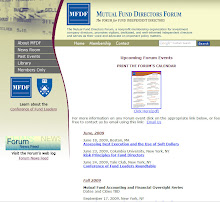Building consensus over such a broad range of economic questions would be difficult in any event. The timing and process for preparing this document, unfortunately, made it more so. Given the differences that remain regarding our views of the systemic weaknesses that led to the crisis, and, more important, policy recommendations for reform, we have chosen not to support the Panel Report as presented. Instead, we provide here a more concise statement of the underlying causes of the current financial crisis and a series of recommendations for regulatory modernization. While there are several points in the Panel Report with which we agree, we also provide a summary of several areas where our disagreement led us to oppose the final product.
Hensarling and Sununu offer their recommendations as alternatives to those of the majority of the Panel, and with the stated "objectives of helping to make markets more competitive and transparent, empowering consumers with effective disclosure to make rational decisions, effectively policing markets for force and fraud, and reducing systemic risk." The following is a summary of their recommendations and certain of their points of disagreement with the majority Panel's recommendations.
1. Reform the Mortgage Finance System by:
- re-chartering the housing GSEs as mortgage guarantors, removing them from the investment business;
- simplifying mortgage disclosures by placing essential information for borrowers in a "simple, one-page document that makes clear what borrowers need to know before they enter into what will be for many the biggest financial transaction they will ever undertake;"
- establishing minimum equity requirements for government guaranteed mortgages;
- allowing Federal Reserve comprehensive mortgage lending rules to take effect and clarify the enforcement authority for mortgage origination standards; and
- restoring accountability for securitized loans by setting minimum standards for all loans that are to be securitized so that securitizers retain some risk for nonperforming loans.
2. Modernize the Regulatory Structure for Financial Institutions.
- Consolidate federal financial services regulation. Government-insured deposit taking institutions should be subject to “prudential regulation and supervision by a single regulator.”
- Modernize the federal charter for insured depository institutions. The OCC and OTS and their corresponding federal thrift, and federal bank charters should be unified.
- Consolidate the SEC and CFTC.
- Establish an optional federal charter for national insurance firms. Congress should institute a federal charter that may be utilized by insurance firms to underwrite,market, and sell products on a national basis.
3. Strengthening Capital Requirements and Improving Risk Management.
- Strengthen capital requirements for financial institutions.
- End conduits and off-balance-sheet accounting for bank assets.
- Adjust the application of mark-to-market accounting rules. "Alternative asset valuation procedures—such as discounted cash flow—should be used, and it should be made easier for financial institutions to declare assets as held-to-maturity during these periods. In normal markets, prices will fluctuate within a limited range, and will rise slowly if at all. But in times of crisis—such as the one we are facing—write-downs beget fire sales, which beget further write-downs."
- Eliminate the credit rating agencies’ cartel.
- Establish a clearinghouse for credit default swaps.
Hensarling and Sununu disagree with the Panel's suggestions in six key areas because they believe the recommendations are, "are rife with moral hazard and the potential for unintended consequences," or "include highly proscriptive proposals that would be difficult, if not impossible to implement outside the walls of academia." Most notably, Sununu and Hensarling take issue with the Panel's recommendation for the formation of a single federal regulator for consumer credit products, like the Consumer Products Safety Commission. Their objection to this recommendation stems from their belief that "the regulation of any federal financial firm requires the balancing of multiple policy choices and should be done by one institution. Experience has shown us with the GSE model that having two stated goals, one for safety and soundness and one for social policy, inherently will lead to conflict."
Hensarling and Sununu also object to the Panel's recommendation that “[h]edge funds and private equity funds are money managers and should be regulated according to the same principles that govern the regulation of money managers generally.” The basis of their objection is that, "[t]he recommendation fails to recognize the important distinctions between investment firms and fails to explain why these distinctions should be ignored." Sununu and Hensarling believe that, because private equity, venture capital, and hedge funds may not be marketed to retail investors, they are fundamentally different than retail investment products and should remain free of "the marketing and registration requirements designed to protect smaller, unsophisticated investors, because they do not serve that market."
The full text of the Sununu/Hensarling dissenting report, the Panel's Report and a video introduction by Elizabeth Warren, the Panel's chair, are available at: http://cop.senate.gov/blog/entries/blog-012909-reformreport.cfm





